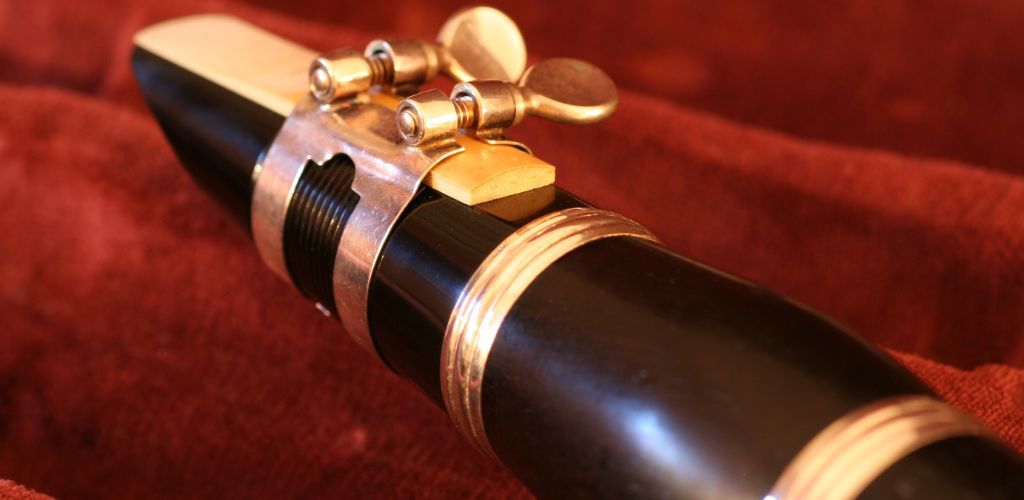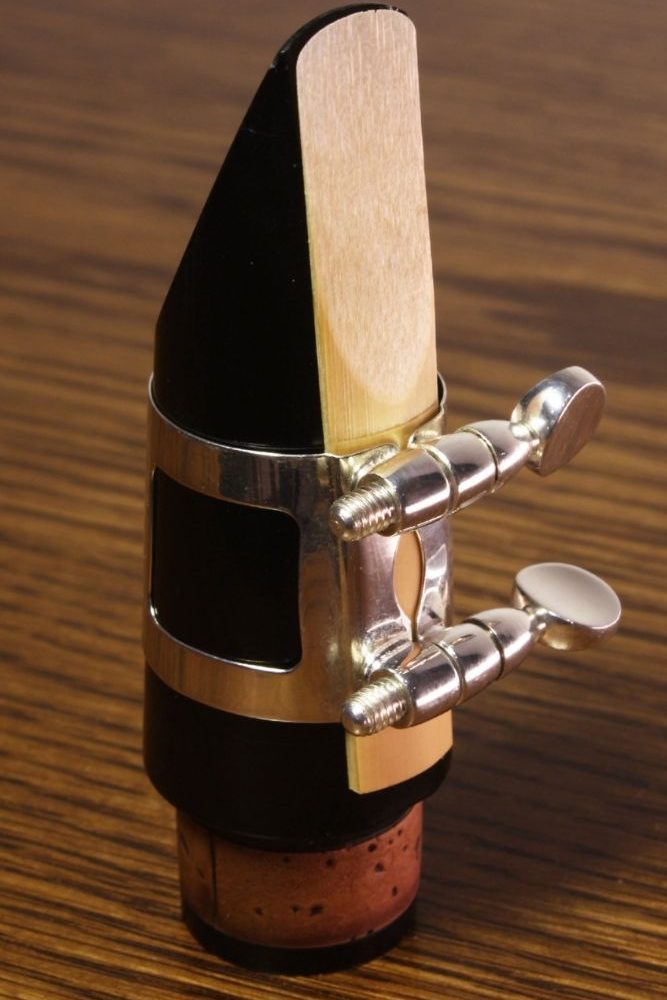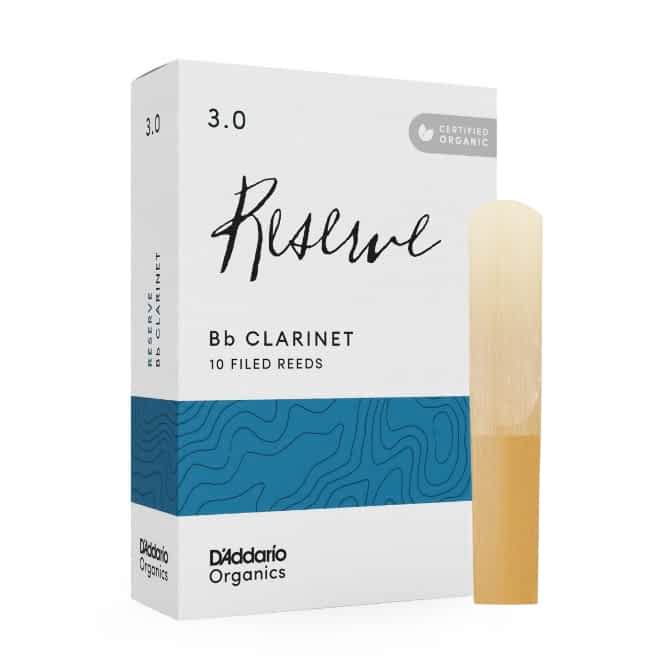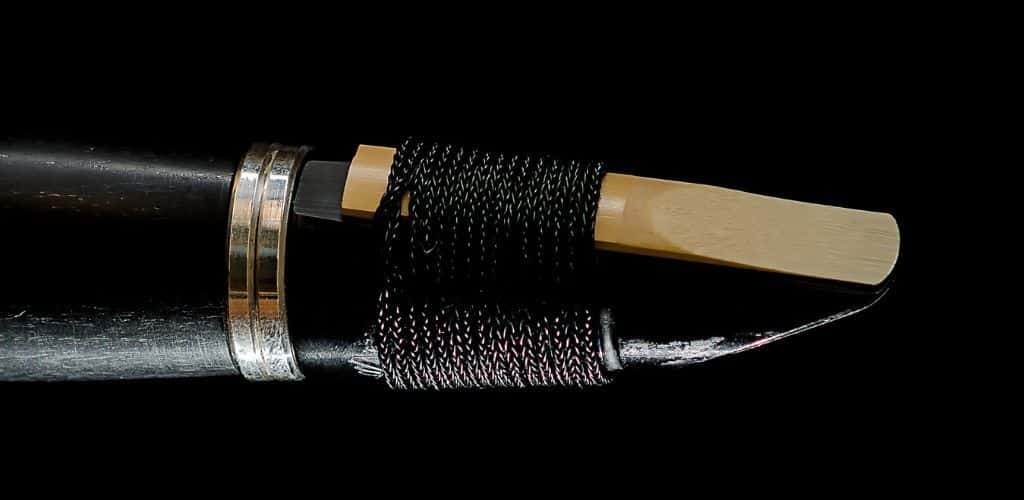Best
Budget Clarinet Reed
-
Overall: Have a shorter vamp, which produces an even tone in all registers
-
Best Feature: With rounded tip corners for extra tonal warmth
-
TedScore™: 8.5/10
Best
Overall Clarinet
Reed
-
Overall: Reliable and high-quality clarinet reed
-
Best Feature: Offer a deep, velvety sound that's sure to impress
-
TedScore™: 9/10
Best
Value Clarinet Reed
Clarinet Reeds DURABLE AND LONG-LASTING REED
-
Overall: Has a longer vibrational palette, which creates a deeper and richer sound
-
Best Feature: With a thicker tip that adds body to your attack
-
TedScore™: 8/10

Considering buying reeds but having trouble finding the perfect size for your clarinet?
Don’t worry! I’ve got you covered.
Clarinet reeds have a numbering system with strengths ranging from 1 to 5, with half sizes in between.
The higher the number, the thicker and harder the reed. But choosing the right size for you doesn’t stop here!
It’s also important to note that different brands and grades can still vary in reed strength.
In this guide, I’ll talk about the different Clarinet reed sizes, plus some of my highly recommended brands!
What Are Clarinet Reeds?

Have you ever wondered how clarinets and other woodwind instruments produce sound? Well, one of the most important components of a clarinet is the reed.
Without a reed, the clarinet would be a hollow tube.
The reed is placed on the mouthpiece, and when you blow through the clarinet, the air makes the reed vibrate, producing sound. So, it is necessary to choose the right reed to produce the desired sound.
Selecting the appropriate reed for your clarinet is critical because it affects the sound that the instrument produces, which, combined with the mouthpiece, makes a significant difference in the overall quality of the music you play.
Why Do Clarinet Reeds Have Different Sizes?

Clarinet reeds come in various sizes to suit a player’s skill level, playing style, and personal preference.
Some manufacturers follow a number system for their sizes, while others use terms like “soft,” “medium,” or “hard” to indicate the reed strength.
Additionally, reeds vary in thickness, ranging from 1 to 5 on a half-number scale. The higher the number, the thicker the reed.
As a beginner, it’s best to start with a “soft”/2 reed and work your way up as you gain more experience.
You can also experiment with different reeds to help you find the perfect one for your playing style and desired sound.
Our Favorite Clarinet Reeds
Vandoren Traditional Clarinet Reeds

FEATURES: Reliable and high-quality clarinet reed
OTHER INFO: Can be used with softer reeds while still maintaining a great tone across all registers
- Offer a deep, velvety sound that's sure to impress
- Available in half-size reed strength increments from 1 - 5
- Reliable and high-quality clarinet reed
- Favourite of so many clarinet players around the world
- individually wrapped to prevent warping and damage
- Higher price range compared to other counterparts
When you click ‘Check Price’, you’ll see there are loads of great places to buy this item. Our personal favorite is Sweetwater for the US, and Thomann and Gear4Music for the UK & Europe.
They are the largest music retailers, with excellent customer service, competitive prices, really fast shipping, and the longest guarantees.
The professional musician who wrote this article combined many things,
from the product build, manufacturer’s reputation through to feedback
from other users, to create our famous TedScore™.
Vandoren V12 Clarinet Reeds

FEATURES: Has a longer vibrational palette, which creates a deeper and richer sound
OTHER INFO: With a thicker tip that adds body to your attack
- Can be used with softer reeds while still maintaining a velvety sound in all registers
- Made from cane tubes with the same diameter as alto saxophone reeds
- Has a consistent tone that evens out across all registers
- More expensive than other reed brands
When you click ‘Check Price’, you’ll see there are loads of great places to buy this item. Our personal favorite is Sweetwater for the US, and Thomann and Gear4Music for the UK & Europe.
They are the largest music retailers, with excellent customer service, competitive prices, really fast shipping, and the longest guarantees.
The professional musician who wrote this article combined many things,
from the product build, manufacturer’s reputation through to feedback
from other users, to create our famous TedScore™.
D'Addario Organic Reserve Clarinet Reeds

FEATURES: Have a shorter vamp, which produces an even tone in all registers
OTHER INFO: With rounded tip corners for extra tonal warmth
- Designed with a traditional heel, which adds a centred sound to your playing
- Ideal for classical and jazz musicians
- A great choice for clarinet players looking for a rich, warm tone and exceptional performance
- Comes in individual packages made of recyclable materials
- Available in strengths 2 - 4.5 only
When you click ‘Check Price’, you’ll see there are loads of great places to buy this item. Our personal favorite is Sweetwater for the US, and Thomann and Gear4Music for the UK & Europe.
They are the largest music retailers, with excellent customer service, competitive prices, really fast shipping, and the longest guarantees.
The professional musician who wrote this article combined many things,
from the product build, manufacturer’s reputation through to feedback
from other users, to create our famous TedScore™.
Legere Signature Synthetic Reeds

FEATURES: Known for their consistency, longevity, and excellent sound quality
OTHER INFO: Have a nice dark tone, great for classical playing
- Uses polypropylene/plastic to make both double and single reeds
- Not affected by humidity or temperature changes, unlike regular cane reeds
- A synthetic reed that doesn't require any breaking in, like a cane reed
- A little bit more expensive compared to other brands
When you click ‘Check Price’, you’ll see there are loads of great places to buy this item. Our personal favorite is Sweetwater for the US, and Thomann and Gear4Music for the UK & Europe.
They are the largest music retailers, with excellent customer service, competitive prices, really fast shipping, and the longest guarantees.
The professional musician who wrote this article combined many things,
from the product build, manufacturer’s reputation through to feedback
from other users, to create our famous TedScore™.
Juno by Vandoren Clarinet Reeds

FEATURES: Specially designed to produce a rich, clear sound quality
OTHER INFO: Much softer reed to play on compared to other brands
- Has extra responsiveness and great consistency
- Provides great value at a reasonable price
- Not be the best choice for advanced players because of its limited size available
When you click ‘Check Price’, you’ll see there are loads of great places to buy this item. Our personal favorite is Sweetwater for the US, and Thomann and Gear4Music for the UK & Europe.
They are the largest music retailers, with excellent customer service, competitive prices, really fast shipping, and the longest guarantees.
The professional musician who wrote this article combined many things,
from the product build, manufacturer’s reputation through to feedback
from other users, to create our famous TedScore™.
Clarinet Reed Sizes
Summary

When it comes to playing the clarinet, finding the perfect reed size for you is crucial. It’s the most important factor that affects the sound and tone you produce.
Remember that it’s essential for the reed to match your mouthpiece’s facing curve for a perfect fit.
Yes, finding the right reed size may take some trial and error, but it’s worth the effort of getting new reeds from your favourite music store.
With the perfect size, you can produce the sound and tone you’ve been striving for. So, keep trying out different sizes until you find the perfect one for you.
Also, remember that the most important thing is to have fun and enjoy the process of learning. Happy playing!
And next up – take a look at this next article, Our List of the Best Beginner Clarinet Reeds.
FAQ's
It’s important to start with a reed that’s not too difficult to play on, so most beginner clarinetists start with a 2 or 2.5-strength reed. As you get more comfortable and experienced, you can gradually work your way up to a harder reed.
The number refers to the thickness of the reed. So, if you pick a lower number, like 1, the reed will be softer and easier to play. But, if you choose a higher number, like 5, the reed will be thicker and take more effort to play. Most reed manufacturers sell strengths in increments of half-steps, so you can find a good reed that’s just right for your skill level.
A size 2 or 2.5 is the best reeds choice for a beginning student. And if you’re looking for a specific brand, Rico, Rico Royal, and Vandoren are all great options. Starting with a soft reed will help build your skills and confidence before gradually moving up to harder reeds.
The highest size typically available is a 5. However, remember that reeds can vary in strength even within the same brand and grade. The strength of a reed refers to its density and flexibility.











While the emphasis on reed strength and its correlation with skill level is well-noted, I believe the discussion on the material composition of the reeds themselves is noticeably absent. Reed material, from traditional cane to synthetic options, plays as pivotal a role in sound production and player comfort as the reed strength. Does anyone else believe this aspect warrants more attention and detail than has been provided?
started with a 2 strength reed and now on a 2.5, can definitely feel the difference. looking forward to trying a 3 soon. this article’s super helpful for understanding why the size matters, thx Kymia Kermani!
always thought clarients needed more cowbell, haha. but for real, vandoren’s are top shelf if you’re looking to step up your game
Good one! But yeah, Vandoren’s are legit.
Hey everyone! I’ve been playing clarinet for a few years now and have always stuck with whatever reeds my instructor recommended, but I’m curious to try something new. Kymia’s mention of Vandoren Traditional Clarinet Reeds caught my eye. Has anyone tried these, and if so, what strength would you recommend for someone who’s comfortable but looking to improve? Also, any tips on adjusting to a new reed strength?